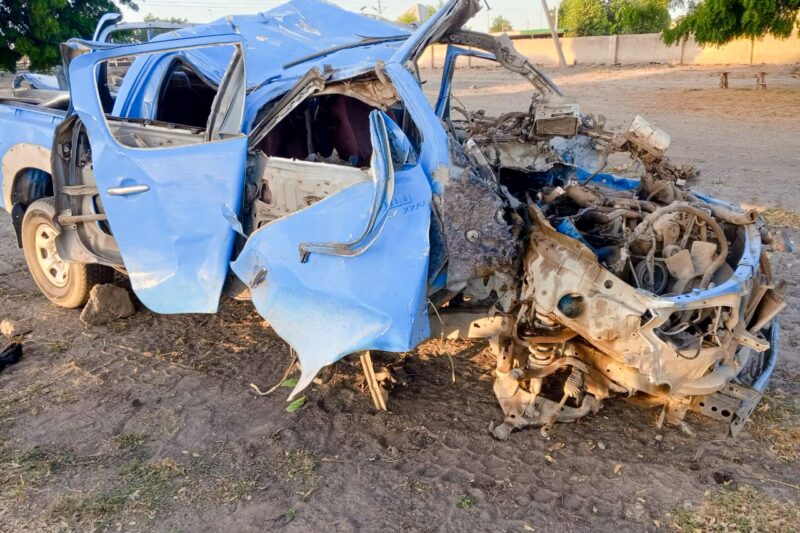A measles outbreak in Damboa, Borno State, is becoming a major health crisis, with at least four or five cases a day being reported at just one health facility.
Residents told RNI reporter Alkali Mustapha the Borno State government urgently needed to do something “before every child in the local government area becomes infected”.
Adam Mala Alkali, from the Damboa Primary Health Care Facility, said the clinic had been recording at least four or five cases of measles every day. More cases were likely being reported at other hospitals, clinics and other health facilities.
Lami Muhammad, a resident of Damboa, said her five-year-old child, Abdullahi was “severely affected by measles”.
She said she had taken her son to the Damboa Primary Health Care Facility twice and had been given medicine.
“My child is still sick so I resorted to using traditional medicines because I do not know what else I can do. A health attendant said I should bath him regularly and look after him,” Muhammad said.
Another resident, Aisha Yarima, said that her daughter had been suffering from measles for a month but she was now getting better.
“The disease has affected many of my neighbours. It is a terrible disease that makes children very weak,” she said.
Fanna Kallama said her six-year-old son had been battling with measles for about two weeks but he now had medicine and was beginning to improve.
Alkali said he was well aware of the outbreak and was doing what he could to halt it, including informing health officials.
“We have advised parents to shun traditional cures and medicines because they will not work. We have the right medicines at our facility and there is sufficient quantity. Parents should come to the clinic as soon as they see any symptoms in their children. The sooner they are treated, the sooner they will get better,” he said.
The Centers for Disease Control and Prevention (CDC) said the best protection against measles was the measles-mumps-rubella (MMR) vaccine, which provided long-lasting protection against all strains of measles.
Measles, or rubeola, is a viral infection that starts in the respiratory system. It still remains a significant cause of death worldwide, despite the availability of the safe, effective vaccine.
Médecins sans Frontières (MSF) − also known as Doctors Without Borders – said measles was extremely contagious and serious. It was especially dangerous for young children and could even be fatal. It said a vaccination campaign was needed to help stem outbreaks such as that in Damboa.
The CDC said some people regarded measles as just a little rash and fever that cleared up in a few days but it could cause serious health complications, especially in children younger than five years of age.
It said some of the common symptoms included a high fever, cough, runny nose, red, watery eyes and a rash.
Measles was spread through the air when an infected person coughed or sneezed. It was so contagious that if one person had it, up to nine out of 10 people around him or her could also become infected if they were not protected, the organisation said.
An infected person could spread measles to others even before knowing he or she had the viral infection – from four days before developing the measles rash through four days afterwards.
Children younger than five and adults older than 20 years of age were more likely to suffer from complications, including ear infections and diarrhoea. Serious complications included pneumonia and encephalitis.
If women were not immune to measles and became infected while pregnant, there was a risk of miscarriage or stillbirth. The baby could be born prematurely (before the 37th week of pregnancy) and have a low birthweight.








